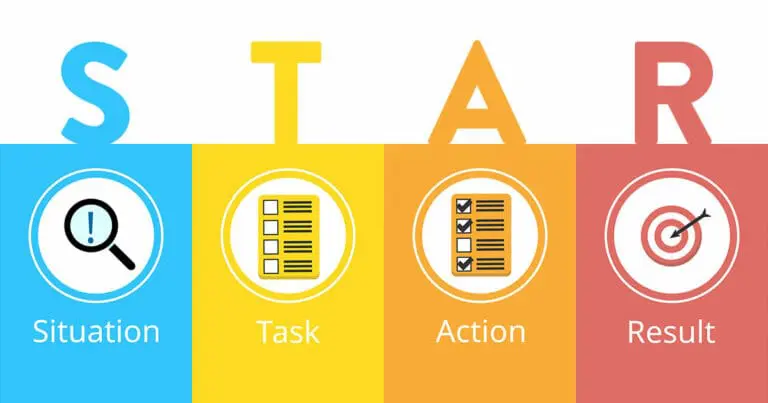Cliche Interview Answers to Avoid & What to Say Instead

If you’ve ever been in an interview, you know that the interviewer will often ask the same questions. These questions are meant to help employers assess your skills, experience, and fit for the role.
However, if you give the same answers as everyone else who is interviewing for the position, you’re going to blend in with the crowd and may not get the job offer.
One way to stand out from the competition is to avoid giving overused interview answers and instead say something more memorable and specific.
This is why it’s important to know which answers to avoid and how to answer these cliche questions in a way that will impress hiring managers.
What defines a bad cliche interview answer?
A cliche interview answer is an answer that has been heard so many times by employers that it no longer has the impact it once did.
These answers are often used because they seem like the safest or most obvious choice, but in reality, they do very little to help you stand out from the competition.
Common interview questions that elicit cliche interview answers
- Tell me about yourself.
- Why are you interested in this company?
- What are your strengths?
- What are your weaknesses?
- Why do you want to work in this industry?
- Where do you see yourself in 5-10 years?
- Why should we hire you?
Interview answers to avoid when job searching
Don’t say: I’m a hard worker.
This response doesn’t work because it’s not specific enough.
Every candidate is going to say that they’re a hard worker, so it doesn’t really tell the employer anything about you.
What to say instead:
Try to give an example of a time when you went above and beyond your job duties or took on a difficult project.
Don’t say: I’m a self-starter.
This is another common answer that doesn’t really tell the employer anything specific about you.
Being a self-starter should be a given in any role so proclaiming that you are one does nothing to differentiate you from the competition.
What to say instead:
Instead of saying that you’re a self-starter, try to give an example of a time when you took the initiative to fill a gap you identified at work without being asked.
For instance, maybe you came up with a new way to streamline a process or started a new project that improved productivity.
Don’t say: I’m a people person.
While it’s important to be able to work well with others, this answer does little to demonstrate your ability to do so.
Employers want to know that you have the interpersonal skills to work well with others.
What to say instead:
Instead of simply saying that you’re a people person, try to give an example of a time when you successfully navigated a difficult situation with a co-worker or customer.
This will show the employer that you have the interpersonal skills to handle challenging situations.
Don’t say: I’m a team player.
In today’s employment landscape, the ability to work well with others is on par with knowing how to turn on a computer. It’s a prerequisite that any candidate needs to have.
Employers want to hear examples that don’t just demonstrate your ability to be a team player — they want to know HOW you’re a team player and the soft skills you leverage to improve your team.
What to say instead:
Try to give an example of a time when you utilized your teamwork skills to achieve a goal.
Did you lead a team to complete a project on time? Did you work with a difficult colleague to find common ground and get the job done? These are the types of examples employers want to hear.
Don’t say: I’m passionate about this industry.
If you don’t feel one way or another about a particular industry that’s ok. Just don’t try to fake it.
What to say instead:
Focus on what you’re passionate about doing within that industry.
For instance, if you’re applying for a job in marketing, do you enjoy analyzing data to find insights? Do you like working with a team to develop strategies?
There are many different aspects of any given industry, so find the one that you’re passionate about and focus on that.
Don’t say: I’m in this for the long haul.
When interviewers ask this question, they’re trying to gauge your level of commitment to the company.
This is an important quality for employers because they want to know that you’re not going to up and leave as soon as a better opportunity comes along.
What to say instead:
Give an example of a time when you stuck with a company through a period of growth or change.
Did you weather a difficult economic period? Did you stay with a company while it went through reorganization?
These are the types of examples that will show your commitment to a company.
Don’t say: This is my dream job.
While it’s great to be enthusiastic about a role, this answer is a bit too much.
The interviewer knows that you want the job, so there’s no need to state the obvious.
What to say instead:
Instead of saying that it’s your dream job, focus on what you like about the company and the role itself.
Do you like the company’s mission? Do you think the role is a good fit for your skills?
These are the types of things that will show your enthusiasm for the job without coming across as over-the-top.
Don’t say: I’m a quick learner.
While being a quick learner is definitely a valuable quality, this answer doesn’t really demonstrate your ability to adapt and learn quickly.
What to say instead:
Give an example of a time when you had to expand your skill set in a short amount of time to meet a need.
Did you have to pick up a new skill for a previous job? Did you have to learn how to use a new piece of software?
These are the types of examples that will show your ability to adapt and learn quickly.
Don’t say: My biggest weakness is that I work too hard.
While it’s admirable to be a hard worker, this answer is a bit too self-serving and interviewers will see it as a strength disguised as a weakness.
What to say instead:
Rather than saying you work too hard, spotlight a specific skill or quality that you’re looking to improve.
For instance, maybe you’re looking to become more organized or efficient in your work.
These are the types of things that will show you’re looking to improve your skills and grow as an employee.
Don’t say: I’m a perfect fit for the job description.
While it’s great to think that you’re a perfect fit for the job, your opinion on the matter is completely subjective.
At the end of the day, it’s up to the potential employer to decide if you’re a perfect fit or not.
What to say instead:
Instead of saying that you’re a perfect fit, try to focus on your qualifications and give examples of what makes you a good fit for the role.
Do you have the right skills? Do you have the similar experience?
These are the types of things that will show you’re a good fit for the job without coming across as overconfident.
Don’t say: I quit my last job because I was unhappy.
While it’s okay to be honest about the fact that you weren’t happy in your last job, this answer doesn’t really reflect well on you.
Employers want to know that you’ll advocate for yourself as much as you plan to advocate for the company within your role.
What to say instead:
Rather than saying that you were unhappy, try to focus on the positive aspects of why you left.
For instance, maybe you left because you were looking for a new challenge or you wanted to learn new skills.
These are the types of things that will show you in a positive light and make it clear that you’re looking for a new opportunity because you’re ready to grow.
Don’t say: No, I don’t have any questions for you.
When interviewers ask if you have any questions, they’re giving you an opportunity to learn more about the company or the role.
This is your chance to show that you’re interested in the position and that you’ve done your research.
What to say instead:
Instead of saying that you don’t have any questions, try to ask a question about the company or the role.
For instance, you could ask about the company’s plans for growth or you could ask about the team you’ll be working with.
These are the types of things that will show your interest in the position and demonstrate that you’ve done your research.
Answering cliche interview questions
By avoiding these overused answers, you can really impress hiring managers and stand out from the competition.
Instead of giving the same old, tired answers, try to focus on your qualifications and give examples of what makes you a good fit for the role.
Do you have the right skills? Do you have similar experience?
These are the types of things that will show you’re a good fit for the job without coming across as overconfident.
So, next time you’re in an interview, avoid these overused answers and really wow your potential employer!
Looking for your next gig? Let us help.
Every year, Mondo helps over 2,000 candidates find jobs they love.
More articles about job searching and industry trends:
- Pandemic-Related Interview Questions & How to Answer Them
- 7 Things to Never Say to a Recruiter When Looking for a Job
- Best Skills to List on Your Resume with Examples
- The 9 Workplace Soft Skills Most Valued By Employers
- Best Questions to Ask to Impress Hiring Managers
- Pay Transparency: What States Have It & Why It’s Important



